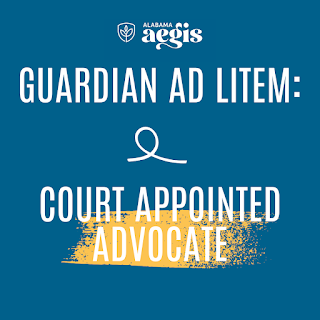
When a loved one becomes involved in a legal case, whether it’s child custody, elder guardianship, or another sensitive matter, you may hear the term “guardian ad litem” or “GAL”. If a GAL has been appointed by the court, it is essential to understand their role and how to work with them effectively.
What is a Guardian ad Litem?
A guardian ad litem is a court-appointed advocate who represents the best interests of an individual who cannot advocate for themselves. This is most often seen in child custody or abuse cases, but GALs are also appointed for vulnerable adults, such as elderly individuals, adults with disabilities, or other incapacitated persons, in guardianship proceedings. GALs are also appointed to those with mental illnesses that have been petitioned through the court for involuntary commitments. The GAL is not the individual’s legal guardian, but serves to independently investigate and advocate for what is best for that individual. Depending on the state, GALs may be lawyers, mental health professionals, or trained volunteers.
Responsibilities of a Guardian ad Litem:
- Conducting independent investigations by interviewing all relevant parties, including parents, caregivers, teachers, doctors, and social workers.
- Reviewing case records, medical reports, school records, and any other documentation relevant to the case.
- Making recommendations to the court based on what they believe is in the best interest of the person they are representing.
- Attending court hearings and presenting findings to the judge.
- Monitoring the well-being of the person they are appointed to protect throughout the legal process.
Unlike an attorney who advocates for their client’s wishes, a GAL’s role is to focus solely on what is in the best interest of the person they are appointed to represent, even if that differs from the individual’s or family’s preferences.
Being Assigned a Guardian ad Litem
If a GAL has been appointed to your case, it’s natural to feel overwhelmed or even defensive. However, taking the right steps can help ensure a smoother process.
- Understand Why They Were Appointed: A GAL is assigned when the court determines an individual needs someone to objectively represent their best interests. This might be due to child custody disputes where parents cannot agree on living arrangements, allegations of neglect or abuse, an elderly person who is the subject of a guardianship or conservatorship case, or a person with disabilities who may need a guardian to ensure their care and safety. Recognizing that the GAL is there to protect the vulnerable individual can help shift your perspective from being adversarial to understanding they are a necessary advocate.
- Provide Relevant Information: From the start, gather and organize any documents, records, or other evidence that might help the GAL understand your perspective. This could include medical records, school reports, therapy records, financial documents, and witness statements. Being transparent and cooperative can strengthen your credibility and ensure the GAL gets a full picture of the situation.
- Be Cooperative and Respectful: Even if you don’t agree with the appointment of a GAL or their approach, being combative or uncooperative can hurt your case. Treat the GAL with respect and answer their questions honestly. If you have concerns, express them professionally rather than defensively.
Working with a Guardian ad Litem
Since the guardian ad litem has significant influence in the court’s decision-making process,
it’s important to maintain a positive and productive relationship.
- Communicate Clearly and Promptly: When the GAL requests information, provide it as soon as possible. Delays can be seen as uncooperative behavior, which may reflect negatively on your case.
- Be Honest and Transparent: A GAL is trained to detect inconsistencies in stories. If you try to manipulate facts, it can damage your credibility. Even if the truth is uncomfortable, being upfront and honest will work in your favor.
- Keep Interactions Professional: While emotions can run high in legal cases, it’s important to remain calm and professional when interacting with the GAL. Avoid unnecessary confrontations or emotional outbursts.
- Document Everything: Keep records of all interactions with the GAL, including emails, phone calls, and in-person meetings. If you provide documents, note when and how they were shared. This documentation can be helpful if any misunderstandings arise.
- Focus on the Best Interests of Your Loved One: At the end of the day, the GAL’s primary concern is the well-being of the individual they are appointed to represent. If you can demonstrate you share this priority, the GAL is more likely to view you as a cooperative and responsible party in the case.
Social Workers and Guardian ad Litems
Navigating a case involving a GAL can be complex and emotionally draining.
Having a licensed social worker as part of your support team can be invaluable.
- Advocacy and Support: A social worker can help you understand the legal process, what to expect from the GAL, and how to effectively advocate for your loved one’s needs.
- Assistance in Gathering Evidence: Social workers have experience compiling case records, medical history, and behavioral assessments. These essential documents can help support your claims.
- Emotional Guidance: Legal battles, especially those involving children or vulnerable adults, can be highly stressful. A social worker can provide emotional support and coping strategies to help you manage the challenges ahead.
- Expert Testimony: In some cases, a licensed social worker can provide testimony in court regarding the well-being of the child or vulnerable adult, offering professional insights that might influence the GAL’s recommendations.
- Navigating Your State’s Legal System: Every state has its own legal procedures when it comes to cases involving a GAL. A licensed social worker who understands your state’s legal system can provide guidance tailored to the state’s specific requirements.
Professional Guidance is Key
A guardian ad litem plays a crucial role in ensuring the well-being of children and vulnerable adults in legal cases. While having one assigned may feel intimidating, understanding their role, maintaining a cooperative approach, and following best practices can make the process smoother. Additionally, working with a licensed social worker can provide invaluable support, helping you navigate the legal complexities with confidence.
If you or a loved one are facing a situation where a guardian ad litem has been appointed, don’t hesitate to seek professional guidance. By staying informed and proactive, you can work toward the best possible outcome for your loved one’s future.
Reach out to learn more about how we can help.








No Comments